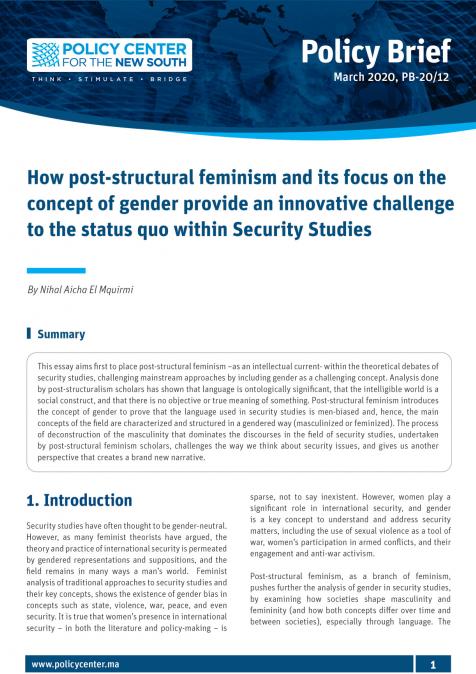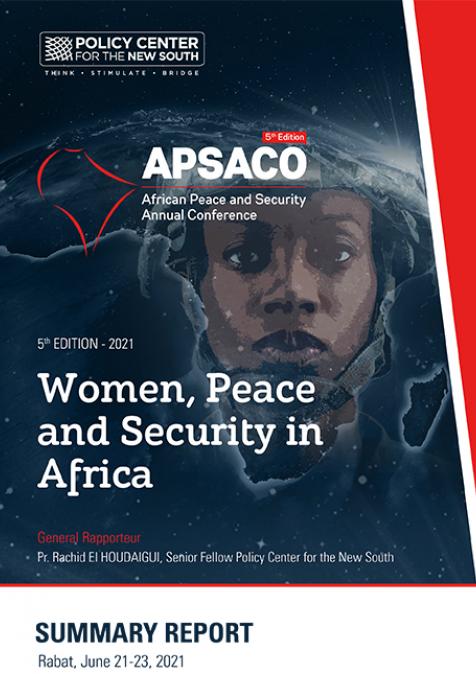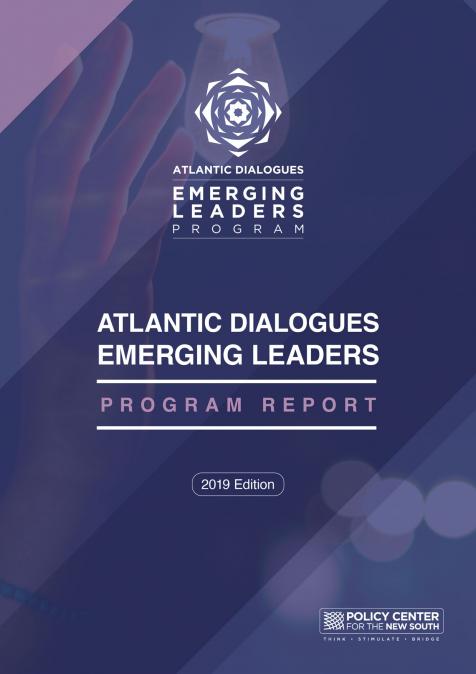Publications /
Policy Brief
This essay aims first to place post-structural feminism –as an intellectual current- within the theoretical debates of security studies, challenging mainstream approaches by including gender as a challenging concept. Analysis done by post-structuralism scholars has shown that language is ontologically significant, that the intelligible world is a social construct, and that there is no objective or true meaning of something. Post-structural feminism introduces the concept of gender to prove that the language used in security studies is men-biased and, hence, the main concepts of the field are characterized and structured in a gendered way (masculinized or feminized). The process of deconstruction of the masculinity that dominates the discourses in the field of security studies, undertaken by post-structural feminism scholars, challenges the way we think about security issues, and gives us another perspective that creates a brand new narrative.







